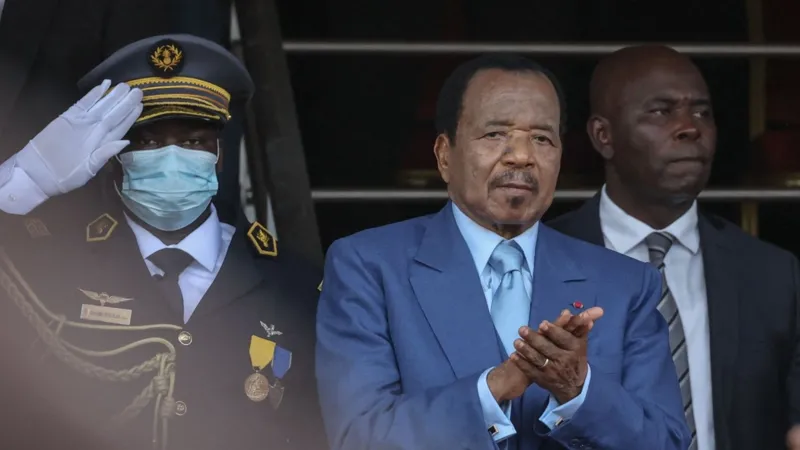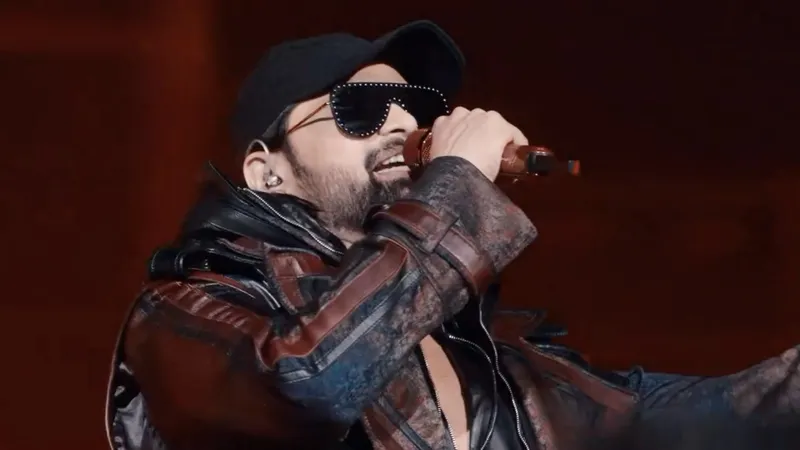My experience interviewing Nicholas Rossi - the fugitive in Scotland now facing a rape trial in Utah
There was always a heavy hint of charade in the company of "Arthur Knight".

It was hard to square the man presenting as a bumbling aristocrat in Glasgow's west end with one of America's most wanted. And yet, there were always clues.
Like his knowledge of Kay Burley. On the day I first arranged to interview him, he told me that TV was a mystery to him and that he never watched it.
Then he said he hoped he wouldn't be nailed to the wall by Kay - our then Sky News colleague and presenter.
How did he know Kay if he knew nothing about television, I wondered.
He also asked how we would "chyron" him, an American term for an on-screen title that I was unfamiliar with (and I'm in the business).
There was also the matter of the plasma TV screen on his front room wall - he knew TV, alright.
Such was the international interest in the story of "Arthur Knight" - real name Nicholas Rossi - there was no escaping the attention of TV and everyone else.
His was a tale lifted from the pages of a fictional thriller - a fugitive pursued halfway across the world and discovered only when he had the misfortune to catch COVID and leave his tattoos exposed on a hospital ward.
Medical staff at Glasgow's Queen Elizabeth University Hospital did the eyes-on execution of an international manhunt.
As careful as he was, Rossi left a digital footprint that US authorities followed to a flat in Glasgow.
When we first arrived, he had been arrested but was out on bail.
It was dark inside his flat, and there wasn't much floor space.
It made movement difficult for Rossi because he was in a wheelchair.
When physical movement demanded finesse, like in lifting him into a car, his wife Miranda manoeuvred him Sumo-wrestler style.
Quite the spectacle.
We sat down for a number of interviews with Rossi and his wife, Miranda. Always, he addressed my questions with the busy eyes of concentrated deceit.
Once, he insisted on sitting with his back to a bookcase. It featured the tome Machiavelli, prominently in shot.
It made me wonder how much of him was enjoying this.
He was a performer, certainly, and I suppose he'd been thrust centre stage.
He claimed to be an Irish orphan, but he never did get the accent right.
It was like a comedy fake when he wrapped an Irish lilt around gravelly tones.
He would suddenly start to sound Irish when you reminded him that he was, eh, Irish.
Not that he had the paperwork to prove it.
There was no birth certificate, no ID for his parents, no idea of exactly where in Ireland he'd been born.
He was the boy from nowhere because he knew he had to be - give any journalist a place to go looking for confirmation and therein lies a trail to ruin.
So "Arthur" kept it vague - his freedom depended on it.
When he did commit to detail, he ran into difficulty.
He told me he'd been raised in homes run by the Christian Brothers in Ireland, and I asked him which ones, specifically.
His reply was: "St. Mary's and Sacred Heart."
A quick check with the Christian Brothers revealed they have no facility named Sacred Heart in Ireland, and anything called St Mary's wasn't residential.
Of course, it was never going to last for him.
The extradition court in Edinburgh had fingerprint and photographic evidence, and there was a tattoo match, too.
Next week sees the start of his latest trial.
He is accused of raping a woman to whom he had been engaged.
The allegations offer a duplication for Rossi's crime modus operandi - isolating women, refusing to leave their company, and engaging in sexual assault.
"Evil," is how he was described by Brian Coogan to me. Brian is a former state representative in Rhode Island who, at one stage, was on the verge of adopting the young Rossi.
He was warned off by the adoption judge, who refused to let it happen, having seen the file on the young man.
Violence in childhood duly extended into adulthood, and Rossi was convicted in 2008 after sexually assaulting Mary Grebinski on a college campus in Ohio.
A DNA sample from that attack is what linked Rossi to rape in Utah, and it's what caused the long arm of the law to reach as far as Scotland.
The footnote to the story concerns Miranda, Rossi's wife, whom he married in Bristol in 2020.
Rossi faked his death in 2020, and his "widow", a woman by the name of Louise, ran around telling people he'd passed away.
Father Bernard Healey, of Our Lady of Mercy Parish Church in Rhode Island, took a call from an English woman - sounding like "Hyacinth Bouquet".
She said Rossi had died and asked if he would hold a memorial mass.
The priest agreed, but when the invitations started going out on social media, he took a call from the police telling him to cancel the arrangements, as Rossi wasn't dead - he'd faked it and was in hiding.
The voice that rang round reporting news of Nicholas' demise was familiar to anyone who has heard his wife Miranda. The two voices sound identical, indeed.
How much was Miranda involved in the deceit? It remains an open question in a story about to enter a new chapter - this time, set in an Utah courtroom.
-SKY NEWS







